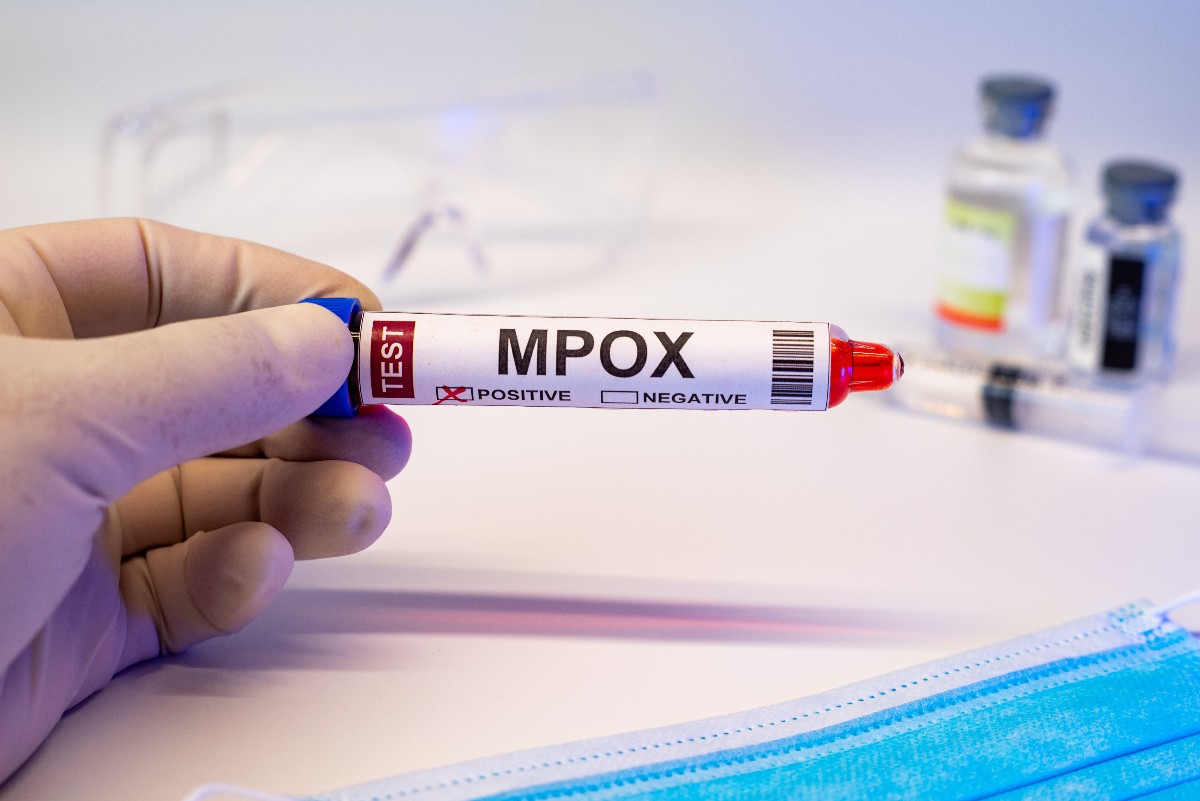
As an outbreak of a new strain of mpox continues in Africa, Sweden announced Thursday that it has confirmed the first case in that country.
Known as the clade I strain, this latest iteration of mpox appears to be spread more easily and cause more severe disease, experts say.
“A person who sought care at Region Stockholm has been diagnosed with mpox caused by the clade I variant. It is the first case caused by clade I to be diagnosed outside the African continent,” the Public Health Agency of Sweden said in a news release.
“In this case, a person has been infected during a stay in the part of Africa where there is a major outbreak of mpox clade I,” said state epidemiologist Magnus Gisslén. “This case does not require any additional infection control measures in itself, but we take the outbreak of clade I mpox very seriously. We are closely monitoring the outbreak and we are continuously assessing whether new measures are needed.”
Sweden’s news follows a declaration made Wednesday by the World Health Organization that the ongoing African outbreak of clade 1 mpox is now a global health emergency.
The virus’ troubling spread throughout the Democratic Republic of Congo (DRC) and nearby countries in central Africa, drove the declaration, WHO director general Dr. Tedros Adhanom Ghebreyesus said at the time.
“The detection and rapid spread of a new clade of mpox in eastern DRC, its detection in neighboring countries that had not previously reported mpox, and the potential for further spread within Africa and beyond is very worrying,” he noted in a WHO news release.
According to the Africa Centers for Disease Control and Prevention, the new outbreak has led to more than 17,500 confirmed and presumed mpox cases and 524 deaths in 13 countries, some of which have never been affected by the disease before.
Most cases have occurred in the DRC, and women and children under the age of 15 appear to be most at risk.
Until Thursday, the newly spotted strain hadn’t been identified in cases outside of Africa.
But the U.S. Centers for Disease Control and Prevention issued a alert last week that advised health care providers to be on the lookout for the new mpox strain in patients who have recently been in the Democratic Republic of Congo (DRC) or any neighboring country (Angola, Burundi, Central Africa).
Still, “due to the limited number of travelers and lack of direct commercial flights from DRC or its neighboring countries to the United States, the risk of clade I mpox importation to the United States is considered to be very low,” the CDC added.
Wednesday’s WHO declaration was meant to spur health agencies in countries worldwide to be on heightened alert for local cases, and to help supply vaccines, treatments and other resources to developing nations hit hard by the disease.
“We need concerted international action to stem this recent, novel outbreak,” Gregg Gonsalves, an epidemiologist at Yale University who served on the WHO’s mpox committee in 2022, told the New York Times.
The WHO announcement followed a declaration on Tuesday by the Africa Centers for Disease Control and Prevention that the outbreak is a “public health emergency of continental security.”
It’s the second time in three years the WHO has designated an mpox outbreak a global health emergency.
In July 2022, an outbreak that originated in Africa spread worldwide, affecting nearly 100,000 people, primarily gay and bisexual men across 116 countries and killing about 200 people, the Times reported.
What’s worrying in the new outbreak is that the death rate linked to the new strain of the disease appears higher: About 3 percent of those infected have died, instead of the 0.2 percent observed in the 2022 outbreak.
Mpox is spread by close skin-to-skin contact, including sex. It’s characterized by a painful rash on hands, feet, chest, mouth or genitals, as well as fever, respiratory symptoms, muscle aches and swollen lymph nodes.
There is a vaccine, Jynneos, that can shield at-risk people from mpox.
Vaccination plus behavioral change among gay and bisexual men, the group most affected in the United States in the 2022 outbreak, has caused U.S. cases of mpox to fall from more than 30,000 in 2022 to 1,700 in 2023.
But the virus is changing: Scientists discovered in 2023 that mpox has gained mutations allowing it to spread more easily between people. Sexual transmission, often through heterosexual prostitution, is a main conduit for infection in Africa.
“I think we learned a great deal about the speed with which this virus can spread,” Anne Rimoin, an epidemiologist at the University of California, Los Angeles, told the Times. She served on the 2022 mpox panel.
The DRC remains the epicenter of the African outbreak, but the country has yet to put an immunization plan in place. Two vaccines, Jynneos and a Japanese shot called LC16, have been approved in the DRC to fight mpox, the Times said.
Donated vaccines are trickling in to Africa, but the Africa CDC has said that over 10 million doses will be needed to rein in the outbreak.
Dr. Nicole Lurie is executive director for preparedness and response at the Coalition for Epidemic Preparedness Innovations, a nonprofit that finances vaccine development.
Speaking to the Times, she said, “this outbreak has been smoldering for quite a long time, and we continually have missed opportunities to shut it down. I’m really glad that everybody is now paying attention and focusing their efforts on this.”
More information
Find out more about mpox at the U.S. Centers for Disease Control and Prevention.
SOURCE: Public Health Agency of Sweden, news release, Aug. 15, 2024; WHO, news release, Aug. 14, 2024; New York Times
Source: HealthDay

Leave a Reply